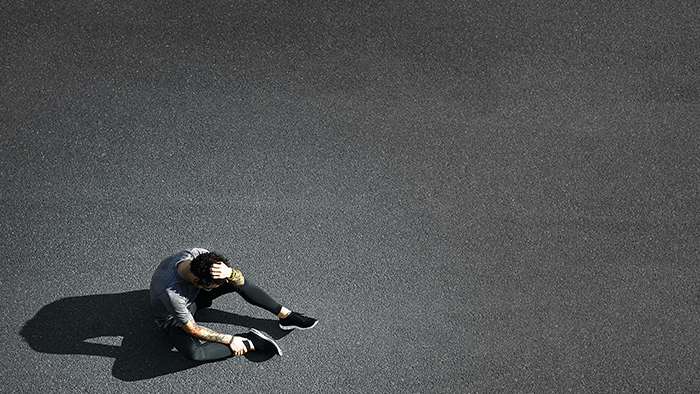Sooner or later, it’s bound to happen: you’ll have a bad race or a DNF. You’ll get to the finish line area and feel overwhelmed—disappointed, frustrated, maybe even angry.
When a race plan is executed well, we rarely look back and ask, “How could it have gone even better?” Instead, we move forward with pride and ask ourselves, “What do I need to do to replicate this feeling at future races?”
But after a string of good results, a bad race can be crushing. So how do we move on from a poor performance? Working through these five questions will help you move forward with a clear understanding of why it happened and, more importantly, how you can move forward.
What went right?
In the heat of the moment, it’s easy to let yourself think, “Nothing went right; it was a total mess.” Most of the time, though, that’s untrue!
Once you’ve had some time to think it over, after an appropriate “cooling off period, so to speak, ask yourself: Did you follow your nutrition plan? Did you stick with the pacing plan you and your coach discussed? Did you feel strong longer in the race than you have before? Did you run the furthest you ever have?
In other words, start by identifying the positive outcomes of your race. This will help you distill out the bigger-picture good vs. bad. We need to remember that we learn from failure—experience is what helps us improve. If we don’t understand what happened during a bad race, we can’t fully enjoy our success.
What did you do to make it right?
This may sound similar to the first question, but it’s about what you did before the race: How did you prepare for success? As the old ultra- and long-distance running adage goes, “Failure to plan is planning to fail.”
What did your crew do to help this go smoothly? What did your coach do that helped you feel good? How did your preparation (workouts, runs or rides) prepare you for the course? What are the controllable pieces that did you manage well? Maybe you followed your training plan to the letter, nailed your nutrition, and you had your most consistent pacing to date. Make notes of how you felt and why so you can replicate for future races. The past is the best teacher for our future. Don’t just look at a bad race as the sum of a whole; look at the pieces.
What was not quite right?
We’ve established what went well, so now let’s look at what could have been improved. Avoid blanket statements like, “Everything,” or even, “My entire nutrition/pacing/training plan was wrong.” If those things felt off, what specifically about them didn’t feel great?
This is a great place to fold in the emotional side of your training. How did you feel when things started to go poorly? What actions (or inactions) precipitated these feelings? Identifying these feelings—even the seemingly minor twinges or grumblings—can provide insight to improve your training plan for next time. For example, does that little twinge in your throat mean you’re thirsty? How about feeling a little grumpy—should you eat? Dissect your inner dialogue here so you can translate better in the future.
What’s the best-case scenario?
How did you imagine this playing out?. How and when did any problems/mistakes/mishaps direct you away from your ideal race plan?
Did you miss your bottle at aid station 3 in the marathon? Did you not feel confident on the climb where you’d planned to throw down the hammer? Did an opponent who you never thought would pass you catch you in the final miles of the race? Did you develop a blister after swapping into new shoes at mile 50 when you were hoping they’d feel comfortable and fresh? Define where you diverged from your ideal state so you can see it coming in the future.
What steps can you take to improve?
Here’s where you can move forward and set your future intentions. This part is great to discuss with your coach, friends, and fellow athletes.
Should you plan to take more salt to avoid the stomach cramps that slowed you enough to miss the cutoff? Do you need to drink more during hot races? Do you need to eat at the start of the climb? Use these questions to set your intentions—and make them known: “I will eat more before I start a big climb in a race, which will help me feel confident about my ascent. Then, actually incorporate those steps into your training.
There are times when a race goes poorly because of conditions beyond your control, like a thunderstorm rolling in during a race or a fall at mile 9 that prevents you from finishing. But barring unforeseen disasters, using these questions to analyze the situation can help you move forward.
They can also help you during a race. When you can be present and focused in a race, you will find yourself thinking about how all these pieces need to fall in place. The best race plans are adaptable, the best athletes know what needs to be done to execute even on the worst days. What we gain on our toughest days is experience – the ultimate teacher for future success.



